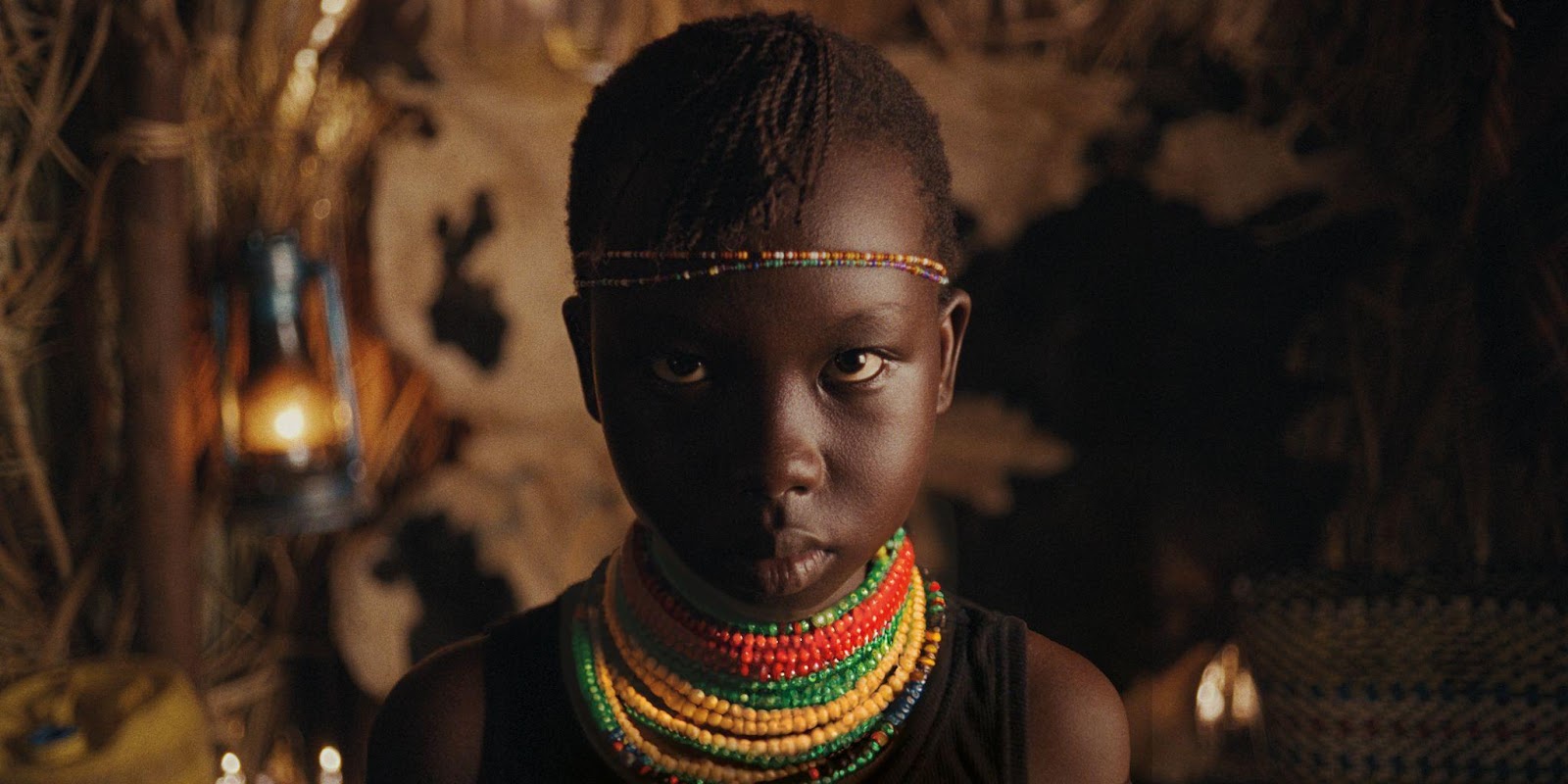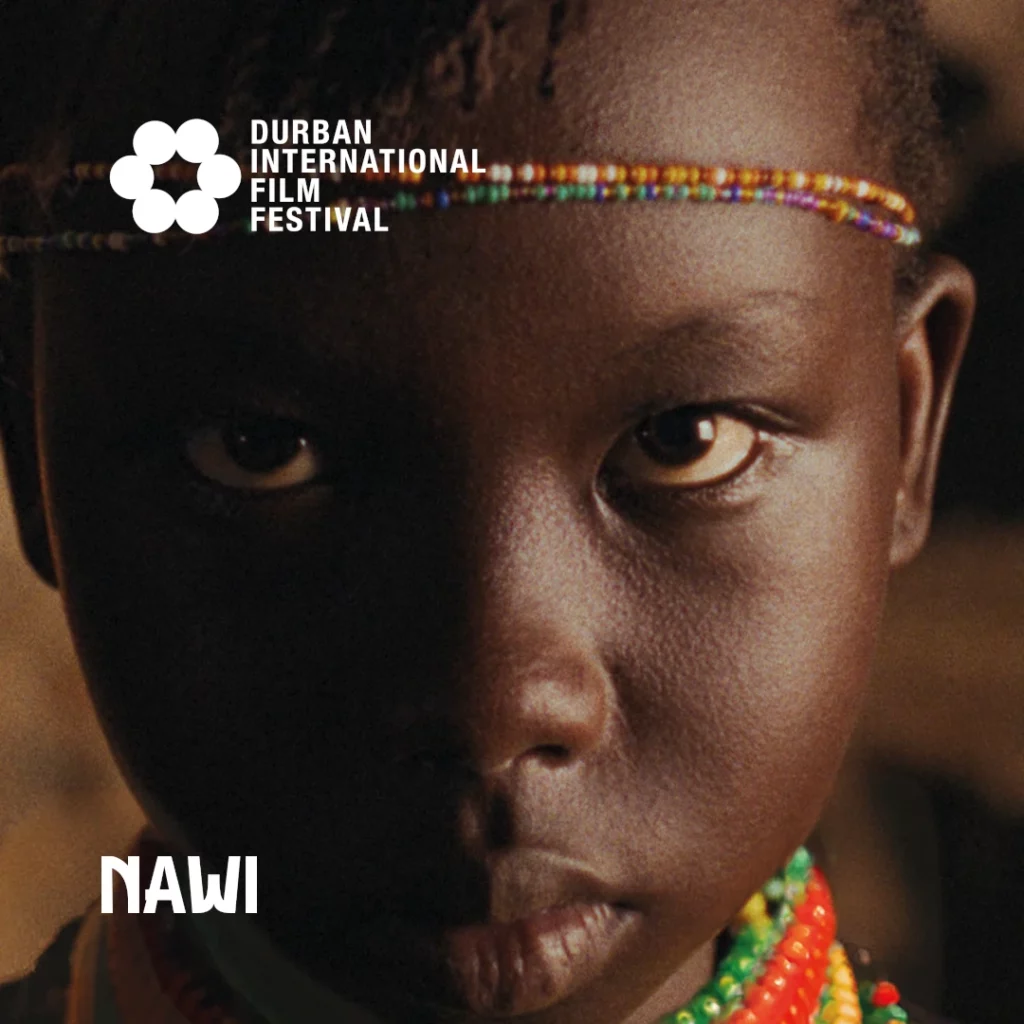By: Tshi Malatji

Nawi: Dear Future Me is a haunting film about the devastating effects of child brides in Kenya’s arid and drought-stricken Turkana region, where water is scarce and harmful cultural practices, which have been outlawed, are still practiced. The main character, Nawi, is a fierce 13-year-old girl raised under strict traditional gender roles and the absolute authority of her father. The pursuit of her dreams, and those of the girl children around her, faces off against a practice of forced marriage and obedience to patriarchal structure.
The film is also about resistance. By all accounts, Nawi is in a situation where she has little agency and is often told to be quiet, submissive and useful. At the same time, she is the most intelligent student at her school and county. There is a clear contrast between how girl children are treated in the homestead and the potential girls have for academic brilliance. Repeated throughout is Nawi’s dream to attend a prestigious high school in Nairobi, which her excellent grades afford. Her only ‘crime’, as she states it, is being born a girl child.
Resistance comes from many directions as well. Nawi’s mother, brother, teacher and friends she makes along the way offer their help with whatever limited power they have, inspired by Nawi’s great intelligence and immense bravery. They are similarly in situations with little agency because the harmful patriarchal traditions have embedded themselves so strongly into the way-of-life of the region that attempts to dismantle them create their own harms as well, or are only achieved with great difficulty. There is a strong pressure to conform in order to fulfill rites of passages and belonging.
The film’s antagonist is Nawi’s own father, a man who has multiple wives and rules his household with a firm fist, ruthlessly beating his son with a cane when he stands out of line. With pressure from his brother and with the intention to expand his own wealth, he sells off Nawi to a wealthier man for 8 camels, 60 sheep and 100 goats. This is what Nawi is worth to her father, as she repeats regularly in the film. He keeps changing his justification for his decision, showing how fragile and incoherent his reasoning is, but also how arbitrary the practice is. Ultimately, he chooses to uphold an oppressive tradition that benefits himself at the great cost of the agency and freedom of women. He also lives with great shame, uncovered by Nawi in the film’s climax. Yet, still he remains steadfast in his ways, offering audiences little in the way of a resolution.
The story may not be based on any one specific true event, but it is certainly an amalgamation of the general experience of girls in the real-world. The Turkana-based NGO Learning Lions, uses the film to share a message about child bride practices which affect millions of girls in Kenya and around the world. While the film’s narrative is dominated by this overarching messaging, it also takes great attention to its visual elements, notably the arid landscape of the region and a very tight and tense-inducing portrayal of Nawi’s travels in the North of Kenya.
Nawi is a heartfelt, tragic film about a young girl, who comes-of-age in a way that will shatter audiences. This is especially because of its parallels to reality and the many continuous setbacks, disappointments and outright painful moments in the film. But it is also a film that shows a young girl who resists, as much as she can, against forces which are much more fragile than the bravery which stands against it.
Catch the film at DIFF: https://ccadiff.ukzn.ac.za/diff46/nawi/
This review emanates from the Talent Press programme, an initiative of Talents Durban in collaboration with the Durban FilmMart Institute and FIPRESCI. The opinions expressed in this article are those of the author (Tshi Malatji) and cannot be considered as constituting an official position of the organisers.

